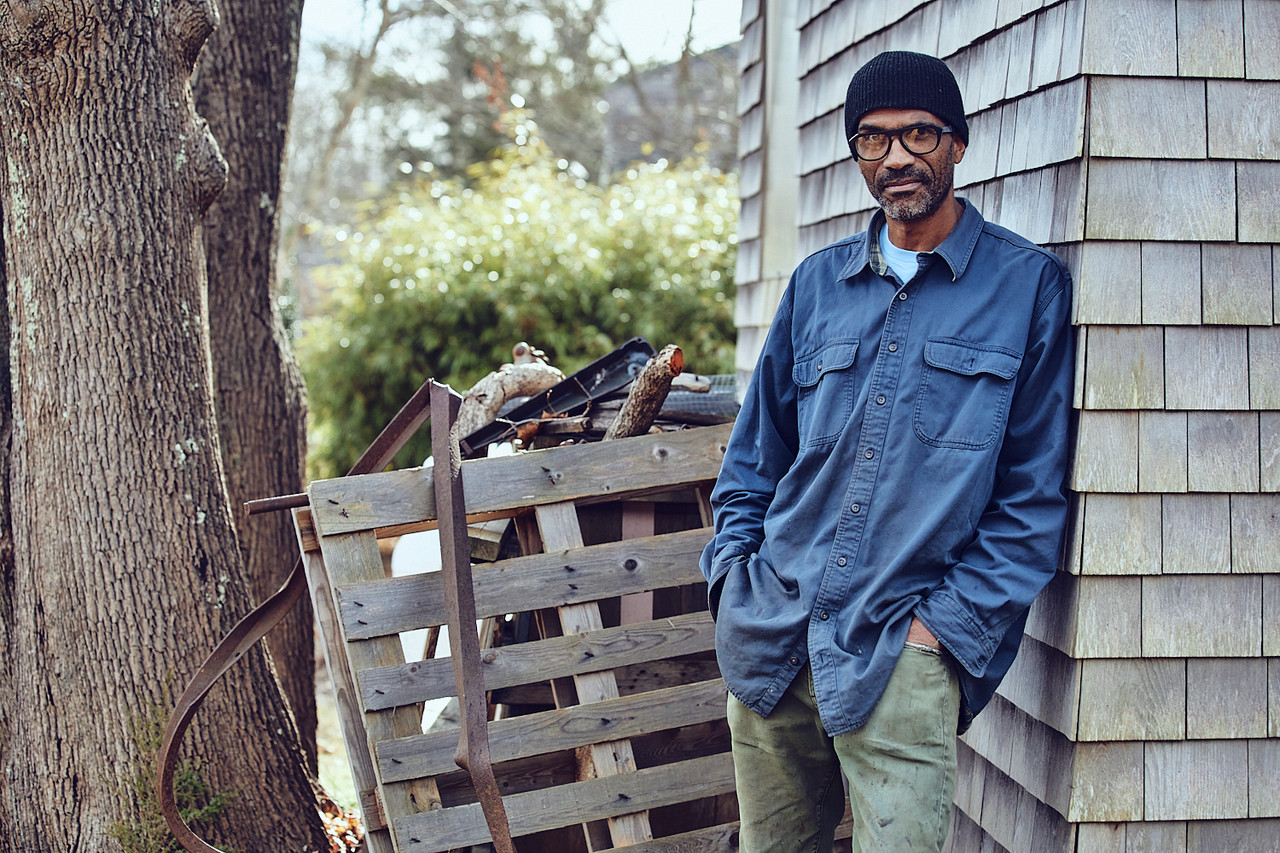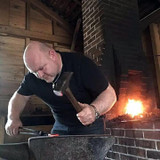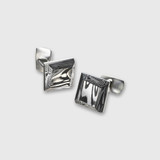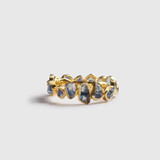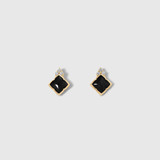COMPELLED TO MAKE
Born in Vermont in 1968, Joshua Prince was the second of three sons born to artistic parents who traded the speed and thrills of New York City to become farmers on 70 acres of pristine Rhode Island woodlands. Prince enjoyed a peaceful, idyllic early childhood surrounded by animals and nature. A later move to Providence, where his father had a professorship at The Rhode Island School of Design, secured Prince’s future in a state rich with diverse cultures and creative family friends.
Though art has always been Prince’s calling, the practicality of carving out a life and livelihood that was financially and feasibly solvent was also a factor. “Being children of artists makes art a part of the family culture: there was always a pile of wood, a lump of clay to keep my little hands busy,” Prince reminisces, “but being on the lower end financially informed me in some way that I needed to find another path as well.” So, he earned a bachelor’s in economics and procured a job firmly placing him on a corporate path that continues to pay the bills today.
But he never stopped making, experimenting with materials, and tinkering. “I am compelled to make,” admits Prince. “Wherever I have lived — whatever my life circumstances — I have always found a way to express myself in materials.” When he stumbled on metal work in 2016, he found his medium. “It feels like the accumulation of information from all of my other pursuits has come together at a time and place in my life where I can really realize my vision,” says Prince. Intrigued by conceptualizing and developing each new object, Prince is more driven by the creative process than the result. “Once complete, there is a fleeting satisfaction. And then I’m on to the next inspired idea,” laughs Prince.
The sculptural knives Prince produces through his business, Princeworks Forge, are indeed inspired. His process begins with ideas — those plausible and implausible (at least for now) — the frenetic sketches of which fill piles of books throughout his studio. He outlines the complete build: defines the theme, refines the design elements, explores materials. “For me, my intentions are often driven by storytelling, to express an idea and feeling through the piece.” Prince continues, “Many times, a particular area of interest may manifest directly into my current work, driving my decisions, telling the story.” As the piece’s story develops, the design is revised by new inspiration, evolving in an organic process defined as much by intention and control as it is by the contrary. “Working in steel, there are certain elements that are beyond absolute control, which, at least in my experience, lends to the excitement.”
As with many formerly niche artisans throughout the world, knife makers have seen an ever-expanding interest in cultivating creativity, collaboration, and synthesis across disciplines and approaches. Finding communion through the shared need to create — to follow a set process and realize objects never seen before or recreated again — knife makers forge a new story not just about the craft, but about life. As the landscape for success — for a meaningful life well-lived — evolves, and evolves again, makers like Joshua Prince find answers in an age-old craft and an even older pursuit: art. “My father told me a long time ago that, no matter what else life should bring, ‘always do your art,’” says Prince, “and that, for me, is success as a continuum.”
Quotes –
Born in Vermont in 1968, Joshua Prince was the second of three sons born to artistic parents who traded the speed and thrills of New York City to become farmers on 70 acres of pristine Rhode Island woodlands. Prince enjoyed a peaceful, idyllic early childhood surrounded by animals and nature. A later move to Providence, where his father had a professorship at The Rhode Island School of Design, secured Prince’s future in a state rich with diverse cultures and creative family friends.
Though art has always been Prince’s calling, the practicality of carving out a life and livelihood that was financially and feasibly solvent was also a factor. “Being children of artists makes art a part of the family culture: there was always a pile of wood, a lump of clay to keep my little hands busy,” Prince reminisces, “but being on the lower end financially informed me in some way that I needed to find another path as well.” So, he earned a bachelor’s in economics and procured a job firmly placing him on a corporate path that continues to pay the bills today.
But he never stopped making, experimenting with materials, and tinkering. “I am compelled to make,” admits Prince. “Wherever I have lived — whatever my life circumstances — I have always found a way to express myself in materials.” When he stumbled on metal work in 2016, he found his medium. “It feels like the accumulation of information from all of my other pursuits has come together at a time and place in my life where I can really realize my vision,” says Prince. Intrigued by conceptualizing and developing each new object, Prince is more driven by the creative process than the result. “Once complete, there is a fleeting satisfaction. And then I’m on to the next inspired idea,” laughs Prince.
The sculptural knives Prince produces through his business, Princeworks Forge, are indeed inspired. His process begins with ideas — those plausible and implausible (at least for now) — the frenetic sketches of which fill piles of books throughout his studio. He outlines the complete build: defines the theme, refines the design elements, explores materials. “For me, my intentions are often driven by storytelling, to express an idea and feeling through the piece.” Prince continues, “Many times, a particular area of interest may manifest directly into my current work, driving my decisions, telling the story.” As the piece’s story develops, the design is revised by new inspiration, evolving in an organic process defined as much by intention and control as it is by the contrary. “Working in steel, there are certain elements that are beyond absolute control, which, at least in my experience, lends to the excitement.”
As with many formerly niche artisans throughout the world, knife makers have seen an ever-expanding interest in cultivating creativity, collaboration, and synthesis across disciplines and approaches. Finding communion through the shared need to create — to follow a set process and realize objects never seen before or recreated again — knife makers forge a new story not just about the craft, but about life. As the landscape for success — for a meaningful life well-lived — evolves, and evolves again, makers like Joshua Prince find answers in an age-old craft and an even older pursuit: art. “My father told me a long time ago that, no matter what else life should bring, ‘always do your art,’” says Prince, “and that, for me, is success as a continuum.”
Featured Favorites
-
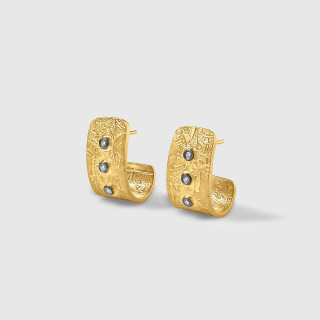
-

Detailed Cicada Pendant Necklace with Diamond Eyes, Sterling Silver
ET-WS-AC-CicadaPendantSterling
$755.00 -

-



 Euro (EUR)
Euro (EUR)
 British Pound (GBP)
British Pound (GBP)
